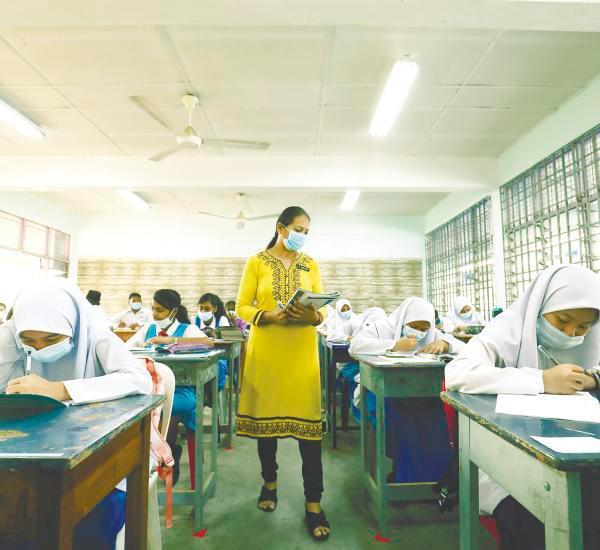PETALING JAYA: Initiatives to enhance proficiency in English among students in underserved areas by bringing in English language teachers from Singapore should merely be a stopgap measure to complement and not replace local teachers, say educationists.
National Association of Private Educational Institutions secretary-general Dr Teh Choon Jin said there needs to be a parallel focus on long-term solutions to ensure sustainable improvements in the education system.
“(Prime Minister Datuk Seri) Anwar Ibrahim’s initiative to bring volunteer English teachers from Singapore is a double-edged sword. While it offers local educators the chance to improve their skills and teaching methods, they also worry about job security and resource allocation.
“Balancing foreign assistance with strong investment in local teacher development is crucial for long-term success.”
Teh said to ensure that the initiative is beneficial and sustainable, it must be carefully managed to complement rather than replace local efforts, and focus on building a self-reliant and robust education system in Malaysia.
He said the decision has also sparked criticism, with some viewing it as undermining local educators and becoming overly reliant on foreigners.
“Also, bringing in volunteer teachers from Singapore carries financial implications. While it involves significant initial and ongoing expenses, the long-term benefits of better English language proficiency among students may justify the investment.
“Effective financial planning and resource allocation are essential to ensure the initiative’s sustainability and success since there is a risk that resources might be diverted from essential local educational needs to support it.”
Malaysian English Language Teaching Association president Prof Sivabala Naidu said qualifications, experience, the passion to educate and the motivation levels of volunteers are factors that would determine the initiative’s success or failure.
“From an educator’s standpoint, having teachers from different backgrounds can provide diverse perspectives and enrich local educators by exposing them to various teaching styles and methodologies.
“In successful cases, factors such as the foreign teachers’ qualifications and experience, their collaboration with local teachers and their cultural adaptability play a significant role.”
While the association backs the decision, Sivabala stressed that the selection process and criteria for choosing individuals are critical factors that must not be overlooked.
Universiti Kebangsaan Malaysia Centre for Diversity Studies in Education lecturer Dr Anuar Ahmad said foreign teachers could bring diverse perspectives and teaching methods that can complement local efforts.
“We have previously brought in teachers from Europe to teach English, so this isn’t a new concept. Best practices from abroad may not be present here.
“A significant advantage of this approach is the effectiveness of diversifying teaching techniques, strategies and methods by bringing in teachers from other countries. When they come in, we empower and organise English language teaching programmes.”
Anuar said the initiative aims to support students in remote regions.
“While there are already local teachers in these areas, the addition of foreign teachers will increase human resources, providing more opportunities for students to learn English.
“With these volunteer teachers, we can reduce the student-teacher ratio for English classes and give more focused attention to the students.
“Cultural and language barriers are minimal since we are quite similar. The practices in Malaysia and Singapore are not very different, and significant barriers are unlikely so there is no major issue here.”









